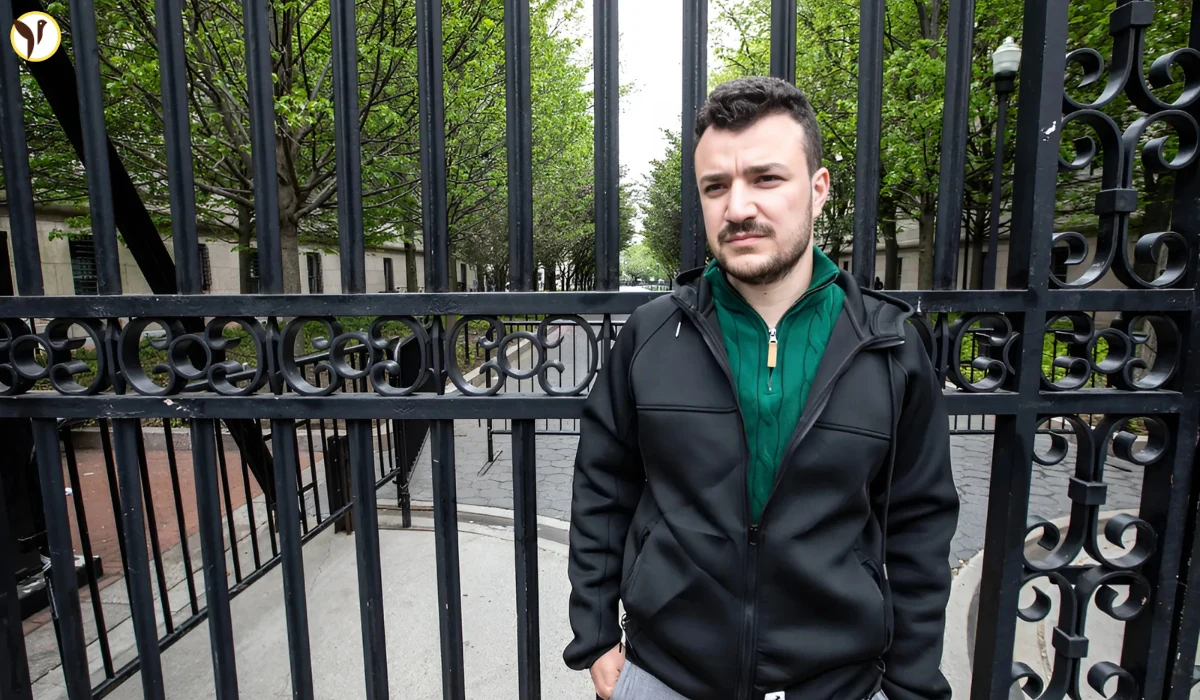In a major legal decision, a federal judge has blocked the deportation of Mahmoud Khalil, a permanent U.S. resident and former Columbia University student. Khalil was detained earlier this year after participating in peaceful pro-Palestinian protests. His arrest raised widespread concerns among civil rights groups, legal experts, and the general public, who viewed it as an attempt to silence political speech. The government had used a rare immigration law tied to foreign policy to justify holding him. The judge’s decision sends a strong message that freedom of speech must be protected, even when it involves individuals who are not U.S. citizens.
Who is Mahmoud Khalil?
Mahmoud Khalil is a legal green card holder who moved to the United States to study at Columbia University. He became known in 2024 for organizing and leading peaceful protests on campus in support of Palestinian rights. His actions were non-violent and fell within the bounds of legally protected speech. Despite this, he was detained by immigration authorities who claimed that his presence could hurt U.S. foreign policy. Khalil has no criminal history and is well-regarded by those who know him. Supporters argue he was targeted not because of any wrongdoing, but because of the views he expressed in public.
Judge Calls Detention Unconstitutional
Judge Michael Farbiarz ruled that the government's reasoning for detaining Mahmoud Khalil was weak and likely violated the U.S. Constitution. The judge pointed out that Khalil’s protest activities were protected under the First Amendment, which defends the right to speak freely, even on controversial issues. The Department of Homeland Security had argued that Khalil posed a threat to foreign policy, but the judge found no solid evidence to support that claim. Instead, he noted that Khalil’s political views were being used against him. This case sets an important precedent, showing that protest speech cannot be punished through immigration enforcement.
Not Free Yet: Government Given Time to Appeal
Although the judge sided with Mahmoud Khalil and ordered a halt to his deportation, he is not yet free. The ruling was a preliminary injunction, meaning it temporarily blocks action while the case is reviewed further. The government now has until Friday morning to decide whether it wants to appeal the judge’s decision. If they file an appeal, Khalil may have to remain in custody until the next hearing. If not, he could be released within days. This period of uncertainty has left his family and supporters anxious, as they await final confirmation about whether he can go home.
Family Separation Raises Concern
During his detention, Mahmoud Khalil was held in a facility in Louisiana, far from his wife and newborn child. Reports say the family was only allowed one short visit, separated by a glass wall. This has caused emotional distress for the family, who have not been able to hold or comfort each other. Human rights groups have criticized the government’s handling of the case, calling the separation cruel and unnecessary. Many believe the treatment of Khalil’s family shows a lack of compassion and fairness. These conditions have added to the growing public concern over how immigration policies are being applied.
What This Means for Protest Rights
Khalil’s case has sparked a national debate about whether immigrants can safely speak out on political issues without risking detention or deportation. Legal experts say the case raises important questions about how free speech applies to non-citizens. The judge’s decision affirms that peaceful protest, even on sensitive topics like foreign policy or human rights, is protected by the Constitution. If this ruling is upheld, it could discourage future attempts to use immigration law to silence protestors. Many advocacy groups are now calling for clearer rules to protect the rights of all residents, regardless of citizenship status, to speak freely.
What Happens Next?
The next step in Khalil’s case depends on whether the government appeals the judge’s decision. They have until Friday morning to file their appeal. If they choose not to, Khalil could be released and reunited with his family. If they do appeal, the legal battle may continue, and Khalil may stay in detention for an extended period. For now, his legal team is preparing for both outcomes. Supporters are hopeful that the government will let the ruling stand. Many see this as a critical test of whether free speech will be defended in the face of political pressure.
Image Source: NBC News









